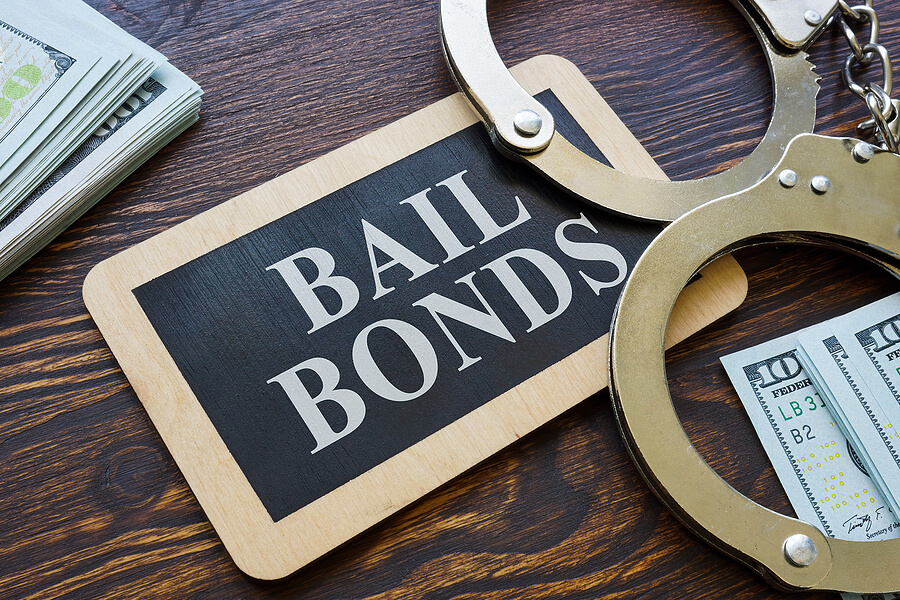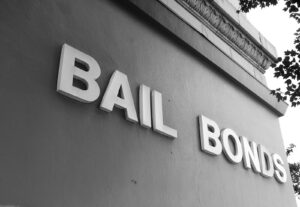While many use the terms bail vs. bond interchangeably, they are not the same. You want to understand and distinguish related concepts: bail and four types of bonds.
What is Bail?
Bail is a refundable amount of money paid to the court to ensure your return for court dates after your release from jail. If you make all your court dates, bail is refunded to you. However, your bail payment is forfeit if you do not show up for court.
Many people cannot afford to pay the bail amount. Therefore the court allows a few options for making bail. Generally, bail must be paid by bail or bail bond before your release. In some cases, a personal bond is granted, with your guarantee to pay the bail should you fail to appear at your court dates. Overall, bail is not intended to be a penalty or a punishment.
What is a Bond?
A bond is a series of promises made by the accused in a contract to secure release from jail. There are four types of bond:
Personal Bond
If you are arrested for a minor crime, like an unpaid speeding ticket or expired card tags, the court may allow you to post a personal bond. A personal bond is a contract you sign, promising to return for all scheduled court dates and refrain from breaking any laws while the personal bond is in force. However, should you miss a court date or commit another crime, you will be rearrested, and bail must be paid in full.
You are not required to pay any money so long as you abide by the personal bond. This is the primary difference distinguishing a personal bond vs. a bail bond.
Cash Bond or Property Bond
When the court sets bail, the defendant is welcome to pay the bail in full in cash. This is known as a cash bond, and it still requires that all the conditions of release are followed. When all the court dates have been met, or in the case of a dismissal, the cash bond payment will be refunded in full. Alternatively, the court may accept a pledge of personal property instead of cash. A lien will be filed against the property until the case is resolved. Restrictions on property bonds vary by jurisdiction.
Bail Bond
Soon after your arrest, the court will arrange a bail hearing. During this hearing, a judge evaluates several factors like the seriousness of the alleged crime, any past criminal history, and the likelihood that you will return for your court date. Based on this evaluation, the judge will set the dollar amount of your bail. At this point, you have two options to get out of jail: either pay the bail in full or secure a bail bond for a fraction of the bail amount. Because bail can range from a few hundred dollars to several million, a bail bond is the choice most people use.
When bail has been set in an amount you cannot afford to pay, a bail bondsman may agree to front the entire bail amount on your behalf in exchange for a nonrefundable fee. This agreement is called a bail bond. With a bail bond, you must continue to abide by the court’s conditions of release. You pay just a fraction of the full bail amount, but your payment to the bail bondsman will not be refunded.
How Does a Bail Bond Work?
Let’s see how bail bonds work in this example.
Remember, bail is the amount of money the court requires to be paid for you to get out of jail. If you cannot afford the bail, you can get a bail bond vs. bail. Let’s say your bail is set at $10,000, but you cannot afford to pay that. You have a friend or family member contact a bail bondsman who agrees to act on your behalf in exchange for a nonrefundable fee, generally 10-15% of the bail amount. You pay the bail bondsman 10% of the set bail, $1,000. In turn, the bail bondsman assures the court that the entire $10,000 bail will be paid should you miss your court date. With a bail bond, both the court and the bond agent have a financial interest in you making your court dates.
So, what’s the difference between bail and a bail bond? In our example, you would pay the full $10,000 to pay the bail and be released from jail. Then, after you make all your required court dates, the bail is refunded in full.
For a bail bond, on the other hand, you would pay a bail bondsman the $1,000 fee to be released from jail–the bail bondsman’s fee is not refundable.
The bail vs. bond difference may very well be the difference between incarceration and freedom. If you or someone you love needs to get out of jail, Simply Bail will connect you with a trusted, licensed bail bondsman and help you navigate the bail bonds system entirely from your electronic device until you or your loved one is released.
Learn more about how Simply Bail works for you. Then, when you’re ready to get started, we’ll help you get your loved one released.
Simply Bail – the fast, secure, and hassle-free way to get someone out of jail.
Related Content:


